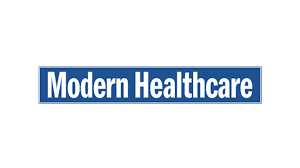
Editor's Note Physician independence continues to decline as hospitals, insurers, and private equity firms expand their ownership of medical practices, according to a US Government Accountability Office (GAO) report published on September 22. The report found that 47% of physicians were employed by or affiliated with hospital systems in 2024,…

Editor's Note Hiring for spinal procedures are tightening and consolidation is accelerating, reshaping where and how ambulatory surgery centers (ASCs) secure talent, Becker’s Spine Review October 3 reports. A mounting orthopedic shortage exceeding 5,000 by year-end is making spine one of the hardest specialties to recruit, with timelines stretching and…

Editor's Note Private equity is driving a quiet but powerful transformation in the $30 billion ambulatory surgery center (ASC) market, heightening risks of higher costs and reduced competition, an October 2025 research brief from the Private Equity Stakeholder Project (PESP) reports. It warns that Wall-Street-backed consolidation and opaque ownership structures…

Editor's Note Private equity ownership drives up colonoscopy prices without delivering better patient outcomes, according to a large retrospective analysis. While independent and private equity-acquired gastroenterology practices show no significant difference in quality, prices at private equity practices rose sharply, especially in highly consolidated markets. The study, published in JAMA…

Editor's Note Oregon has enacted the nation’s strictest law yet to curb corporate control of physician practices, a move that could indirectly affect office-based surgery (OBS) centers structured as medical clinics. As reported by Modern Healthcare on June 13, the new law reinforces the state’s corporate practice of medicine doctrine…

Editor's Note Some health systems are cutting ties with long-standing partners to conserve resources, brace for financial uncertainty, and prioritize core clinical services, Modern Healthcare June 26 reports. With looming federal reimbursement cuts and increasing economic pressures, providers are reassessing the value and sustainability of affiliations formed during more stable…

Editor's Note Independent gastroenterology (GI) practices face mounting pressures from inflation, labor shortages, and regulatory burden, but five distinct strategies offer owners a path forward, Gastroenterology & Endoscopy News May 23 reports. As detailed in the article, GI practices—especially smaller ones, which make up the majority of the approximately 2,100…

Editor's Note Chasing size through mega-mergers no longer guarantees sustainability for health systems, according to an April 15 article in HealthLeaders. Many of the nation’s largest systems are reporting significant losses, while emerging evidence links consolidation to stagnant or declining care quality and worsening workforce challenges. The article highlights financial…

Editor's Note Growing consolidation and private equity investments in healthcare are driving up costs, reducing access, and raising quality concerns, according to a new report from the Department of Health and Human Services (HHS). According to HHS’ January 15 announcement, the report stems from a tri-agency effort by HHS, the…

Editor's Note In this OR Manager Conference session focusing on alternative funding options for capital acquisition and related consumables, Steve Spring, BA, executive finance director at Massachusetts General Hospital, outlined various strategies and considerations for managing high-value capital equipment purchases. A core challenge discussed was balancing surgeon demands for advanced…